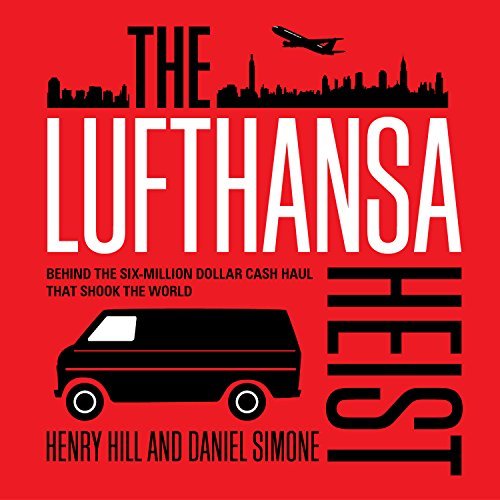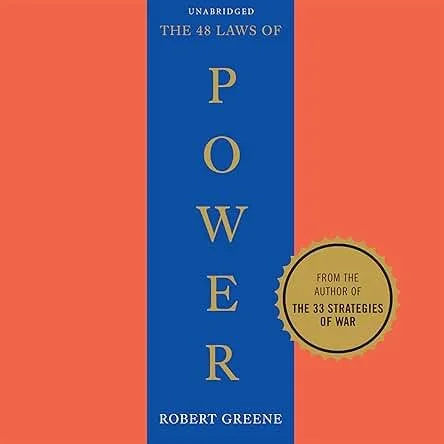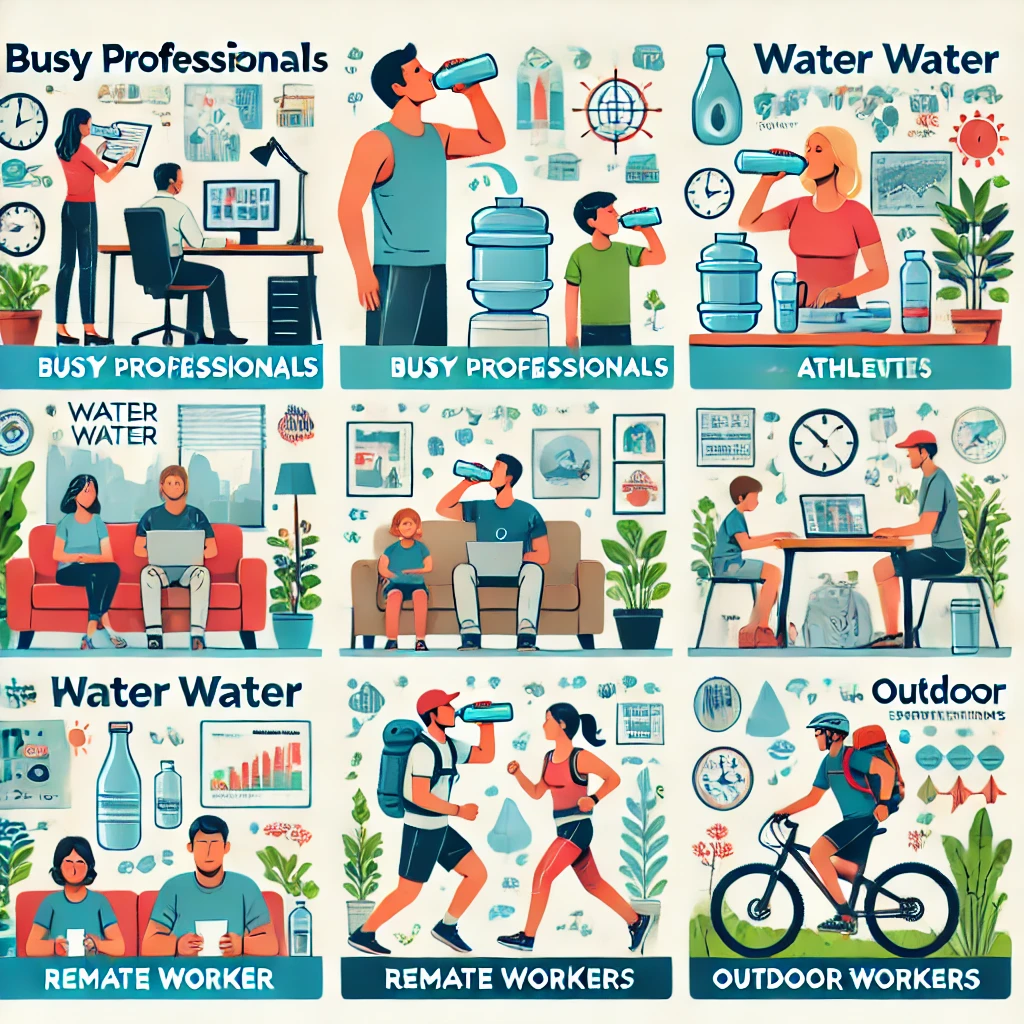Wonderful mix of facts, sound medical advice, anecdotes and opinions for living a long healthy life
Reviewed in the United States on August 2, 2023
Verified Purchase
This 2023 book “Outlive: The Science and Art of Longevity” by Peter Attia, M.D. (with acknowledged contributions by others including Bill Gifford) is a wonderful mix of facts, medical advice, personal and family anecdotes and opinions for living a long life that you, your friends, relatives, and medical professionals will enjoy. One main recommendation is to exercise regularly (in specific ways) while avoiding injury. He recommends particular medical tests. The book is worth purchasing and reading to understand how to live a longer healthier life. As an example of the substance and style of this book, Attia writes: “The information and advice presented in this book are not meant to substitute for the advice of your family’s physician or other trained healthcare professionals. You are advised to consult with healthcare professionals with regard to all matters pertaining to you and your family’s health and well-being.”
Attia writes: “as a surgical resident at Johns Hopkins, I would learn that death comes at two speeds: fast and slow… Ultimately… slow deaths ended up bothering me even more. But this is not a book about death… [but about] longevity… Longevity does not… mean merely notching more and more birthdays as we slowly wither away… In 1900, life expectancy hovered somewhere south of age fifty, and most people were likely to die from “fast” causes: accidents, injuries, and infectious diseases… the odds are overwhelming that you will die as a result of one of the chronic diseases of aging that I call the Four Horsemen: heart disease, cancer, neurodegenerative disease, or type 2 diabetes and related metabolic dysfunction… Longevity has two components. how long you live… [and] the quality of your years… called healthspan… defined as the period of life when we are free from disability or disease… Death rates from cancer, on the other hand, have hardly budged in the more than fifty years since the War on Cancer was declared, despite hundreds of billions of dollars’ worth of… spending on research. Type 2 diabetes remains a raging public health crisis, showing no sign of abating, and Alzheimer’s disease and related neurodegenerative diseases stalk our growing elderly population… None of our treatments for late-stage lung cancer has reduced mortality by nearly as much as the worldwide reduction in smoking that has occurred over the last two decades, thanks in part to widespread smoking bans. This simple preventive measure (not smoking) has saved more lives than any late-stage intervention that medicine has devised… Medicine’s biggest failing is [treating] all these conditions… after they are entrenched—rather than before they take root.”
Attia writes: “The metabolic derangement that leads to type 2 diabetes also helps foster and promote heart disease, cancer, and Alzheimer’s disease… all “diets” are similar… protein becomes critically important as we age… Exercise is by far the most potent longevity “drug.” No other intervention does nearly as much to prolong our lifespan and preserve our cognitive and physical function. But most… don’t do nearly enough—and exercising the wrong way can do as much harm as good…”
Attia writes: “there have been two distinct eras in medical history, and [we are] on the verge of a third… Hippocrates’s major contribution was the insight that diseases are caused by nature and not by… the gods… Medicine 2.0 arrived in the mid-nineteenth century with the advent of the germ theory of disease... [and] eradicated deadly diseases such as polio and smallpox… Yet Medicine 2.0 has proved far less successful against long-term diseases such as cancer… lifespans have nearly doubled since the late 1800s, [almost] entirely from antibiotics and improved sanitation... if you subtract out deaths from the eight top infectious diseases… overall mortality rates declined relatively little over the course of the twentieth century… [The goal of] Medicine 3.0—is… to be thriving… throughout the latter half of our lives… Lifespan… is binary: you’re alive, and then you’re dead. It’s final. But before that happens… most people suffer through a period of decline that… is like dying in slow motion… while actual death is inevitable, this deterioration… is less so… If you increase your muscle strength and improve your cardiorespiratory fitness, you have also reduced your risk of dying…”
Attia writes: “[Exercise] components [are]: strength, stability, aerobic efficiency, and peak aerobic capacity. We want to maintain physical strength, stamina, stability across a broad range of movements, while remaining free from pain and disability… exercise [is] the most potent longevity “drug” in our arsenal, in terms of lifespan and healthspan. The data are unambiguous: exercise not only delays actual death but also prevents both cognitive and physical decline, better than any other intervention…”
Attia writes: “data comes from studies of… people who have lived to the age of one hundred and beyond, often in good health… many of them get to enjoy one, or two, or even three Bonus Decades…. Researchers… [found that] individuals [had] very little in common with one another genetically… Natural selection has endowed us with genes that work beautifully to help us develop, reproduce, and then raise our offspring [but] after the age of reproduction, natural selection loses much of its force… [Yet] a handful of potential longevity genes… are possibly relevant to our strategy. One [gene]… called … APOE (apolipoprotein E) that is involved in cholesterol transport and processing, and it has three variants: e2, e3, and e4… The e2 variant of APOE… seems to protect its carriers against dementia—and it also turns out to be very highly associated with longevity… FOXO3 belongs to a family of “transcription factors,” which regulate how other genes are expressed—meaning whether they are activated or “silenced.”… When FOXO3 is activated, it in turn activates genes that generally keep our cells healthier. It seems to play an important role in preventing cells from becoming cancerous as well.”
Attia writes: “gene expression can be influenced by your environment and your behaviors… a 2007 study found that older people who were put on a regular exercise program shifted to a more youthful pattern of gene expression after six months. This suggests that genetics and environment both play a role in longevity and that it may be possible to implement interventions that replicate at least some of the centenarians’ good genetic luck… think of centenarians as the results of a natural experiment that tells us something important about living longer and living better… The experiment entails taking a random collection of human genomes and exposing them to a variety of environments and behaviors. The centenarians possess the correct combination of genome X required to survive in environment Y (perhaps with help from behaviors Z).”
Attia writes: “Protein aggregates have been implicated in diseases such as Parkinson’s and Alzheimer’s disease, so getting rid of them is good; impaired autophagy has been linked to Alzheimer’s disease… and also to amyotrophic lateral sclerosis (ALS), Parkinson’s disease, and other neurodegenerative disorders… By cleansing our cells of damaged proteins and other cellular junk, autophagy allows cells to run more cleanly and efficiently and helps make them more resistant to stress… The FDA has given the green light for a clinical trial of another drug with potential longevity benefits, the diabetes medication metformin… studies appeared to confirm… that patients on metformin appeared to have a lower incidence of cancer than the general population… diabetics on metformin actually lived longer than nondiabetics[striking!].”
Attia writes: “In the late 1970s, the average American adult male weighed 173 pounds. Now the average American man tips the scale at nearly 200 pounds… According to the [CDC] more than 40 percent of the US population is obese… another third… is overweight (BMI of 25 to 30)… visceral fat is linked to increased risk of both cancer and cardiovascular disease… fat-storage capacity seems to be influenced by genetic factors… our metabolism, as it has evolved over millennia, is not equipped to cope with our ultramodern diet, which has appeared only within the last century or so… We needed to… endure periods of time without much food, and natural selection obliged, endowing us with genes that helped us conserve and store energy in the form of fat… to survive periods of famine, cold climates, and… illness and pregnancy.”
Attia writes: “At some point, our primate ancestors underwent a random genetic mutation that effectively switched on their ability to turn fructose into fat… This newfound ability to store fat enabled them to survive in the colder climate… But in our modern world, this fat-storage mechanism has outlived its usefulness… It is very difficult to get fat from eating too many apples, for example, because the fructose in the apple enters our system relatively slowly, mixed with fiber and water, and [we] can handle it normally… I test my patients’ levels of uric acid, not only because high levels may promote fat storage but also because it is linked to high blood pressure… While heart disease is the most prevalent age-related condition, it is also more easily prevented than either cancer or Alzheimer’s disease… atherosclerotic disease… still kills more people than cancer in the [US] each year… Heart disease remains our deadliest killer, … [but] this should be the tenth leading cause of death, not the first.”
Attia writes: “The reason they’re called high-and low-density lipoproteins (HDL and LDL, respectively) has to do with the amount of fat relative to protein that each one carries... it’s not the cholesterol per se that causes problems but the nature of the particle in which it’s transported… Another major misconception about heart disease is that it is somehow caused by the cholesterol that we eat in our diet… The humble egg… has remained in nutritional purgatory for decades, even after reams of research papers showing that dietary cholesterol (and particularly egg consumption) may not have much to do with heart disease at all… The vast majority of the cholesterol in our circulation is actually produced by our own cells… dietary guidelines finally… conceded (in 2015) that “cholesterol is not a nutrient of concern for overconsumption.” Glad we settled that… the American Heart Association guidelines still favor LDL-C testing instead of apoB. I have all my patients tested for apoB regularly, and you should ask for the same test the next time you see your doctor… We are fortunate that many of these conditions can be modulated or nearly eliminated—including apoB, by the way—via lifestyle changes and medications… I take a very hard line on lowering apoB, the particle that causes all this trouble. (In short: get it as low as possible, as early as possible.)… if we all maintained the apoB levels we had when we were babies, there wouldn’t be enough heart disease on the planet for people to know what it was… In my clinical experience, about a third to half of people who consume high amounts of saturated fats… will experience a dramatic increase in apoB particles, which we obviously don’t want. Monounsaturated fats, found in high quantities in extra virgin olive oil, macadamia nuts, and avocados (among other foods), do not have this effect... The point is not necessarily to limit fat overall but to shift to fats that promote a better lipid profile… But for many patients... lowering apoB… cannot be accomplished with diet alone... Statins are far and away the most prescribed class of drugs for lipid management... statins… are very helpful drugs for reducing apoB or LDL concentration in many patients... For people who can’t tolerate statins, I [prescribe] bempedoic acid (Nexletol),”
Attia writes: “Like heart disease, cancer is a disease of aging. That is, it becomes exponentially more prevalent with each decade of life… there were more cancer deaths among people between forty-five and sixty-four than from heart disease… The problem we face is that once cancer is established, we lack highly effective treatments for it. Our toolbox is limited… surgery is of limited value when cancer has metastasized, or spread. Metastatic cancers can be slowed by chemotherapy, but they virtually always come back… Cancer cells… stop listening to the body’s signals that tell them when to grow and when to stop growing… a gene called PTEN, which normally stops cells from growing or dividing (and eventually becoming tumors), is often mutated or “lost” in people with cancer, including about 31 percent of men with prostate cancer and 70 percent of men with advanced prostate cancer. Such “tumor suppressor” genes are critically important to our understanding of the disease… not only is breast cancer genetically distinct from colon cancer (as the researchers expected), but no two breast cancer tumors are very much alike… With a few exceptions… solid organ tumors typically kill you only when they spread to other organs… Prostate cancer kills only when it becomes metastatic… Once cancer has spread, the entire game changes… excess weight is a leading risk factor for both cancer cases and deaths, second only to smoking… Obesity itself is strongly associated with thirteen different types of cancers… [For] colorectal cancer (CRC)… About 70 percent of people who are diagnosed with CRC before the age of fifty have no family history or hereditary conditions linked to the disease… Of all the Horsemen, cancer is probably the hardest to prevent”
Attia writes: “In the [US], about 6 million people are diagnosed with Alzheimer’s disease… 1 million have been diagnosed with Parkinson’s... Exercise is the only intervention shown to delay the progression of Parkinson’s… Having type 2 diabetes doubles or triples your risk of developing Alzheimer’s disease, about the same as having one copy of the APOE e4 gene… APOE e4… seems to accelerate other risk factors and driver mechanisms for Alzheimer’s… Curiously, APOE e4 was not always a bad actor… The e3 mutation showed up about 225,000 years ago, while e2 is a relative latecomer, arriving only in the last 10,000 years… In environments where infectious disease was a leading cause of death, APOE e4 carriers may have been the lucky ones, in terms of longevity… The single most powerful item in our preventive tool kit is exercise… Strength training is likely just as important… I now tell patients that exercise is… the best tool we have in the neurodegeneration prevention tool kit… Sleep is also a very powerful tool against Alzheimer’s disease... Sleep disruptions and poor sleep are potential drivers of increased risk of dementia… There is a growing body of research linking oral health… with overall health… The conundrum we face is that our environment has changed dramatically over the last century or two, in almost every imaginable way—our food supply and eating habits, our activity levels… Our genes no longer match our environment. Thus, we must be cunning in our tactics…to… thrive”
Attia writes: “exercise has the greatest power to determine how you will live out the rest of your life… even a fairly minimal amount of exercise can lengthen your life by several years. It delays the onset of chronic diseases, pretty much across the board, but it is also amazingly effective at extending and improving healthspan… So if you adopt only one new set of habits based on reading this book, it must be in the realm of exercise…”
Attia writes: “each of us needs to be training for the Centenarian Decathlon… [Decide on] the ten most important physical tasks you will want to be able to do for the rest of… your life… [Consider a] long list of physical tasks that might include some of the following: Get up off the floor under your own power… Lift a twenty-pound suitcase into the overhead compartment of a plane… [from say] more than fifty different items.... [then] select which of these tasks [you] want to be able to perform… in [your] ninth… decade. [then] come up with a list of ten… to become a different sort of athlete altogether: an athlete of life… I structure my training around exercises that improve the following… Grip strength… to be able to lift the weight up and put it back down, slowly and with control… Pulling motions… Hip-hinging movements... I focus on these four foundational elements of strength because they are the most relevant to our Centenarian Decathlon… studies suggest that grip strength—literally… how hard you can squeeze something with one hand—predicts how long you are likely to live… It’s not about telling you what to eat; it’s about figuring… out what works for your body and your goals—and, just as important, what you can stick to…”
Attia writes: “Nutrition is relatively simple.... don’t eat too many calories, or too few; consume sufficient protein and essential fats; obtain the vitamins and… minerals you need; and avoid pathogens… Beyond that, we know relatively little with complete certainty. Read that sentence again, please… a lot of the old cliché expressions are probably right: If your great-grandmother would not recognize it, you’re probably better off not eating… Plants are very good to eat. Animal protein is “safe” to eat. We evolved as omnivores; ergo, most of us can probably find excellent health as omnivores.”
Attia writes: “some clinical trials have provided some useful bits of knowledge. One of the… clinical trials… show a clear advantage for the Mediterranean diet—or at least, for nuts and olive oil… The study was meant to last six years, but in 2013… halted it prematurely, after just four and a half years, because the results were so dramatic… The group receiving the olive oil had about a one-third lower incidence (31 percent) of stroke, heart attack, and death than the low-fat group, and the mixed-nuts group showed a similar reduced risk (28 percent). It was therefore deemed unethical to continue the low-fat arm of the trial. By the numbers, the nuts-or-olive-oil “Mediterranean” diet appeared to be as powerful as statins…”
Attia writes: “SAD, the Standard American Diet [is] almost as devastating to most people as tobacco when consumed in large quantities… The farther away we get from the SAD, the better off we will be… The real art… [is] finding the best mix of macronutrients… [and] an eating pattern [that one] can sustain… our four macronutrients: alcohol, carbohydrates, protein, and fat… Alcohol serves no nutritional or health purpose but is a purely hedonic pleasure that needs to be managed. It’s especially disruptive for people who are overnourished... it’s an “empty” calorie source that offers zero nutrition value… chronic drinking has strong associations with Alzheimer’s disease, mainly via its negative effect on sleep… it loosens inhibitions around other kinds of food consumption…”
Attia writes: “Many studies have found powerful associations between insufficient sleep (less than seven hours a night, on average) and adverse health outcomes ranging from increased susceptibility to the common cold to dying of a heart attack… As important as sleep is for the body, it may even be more so for the brain. Good sleep, in terms of not only quantity but quality, is critical to our cognitive function… there is a growing body of evidence that sleeping well is essential to preserving our cognition as we age and staving off Alzheimer’s disease.”













































